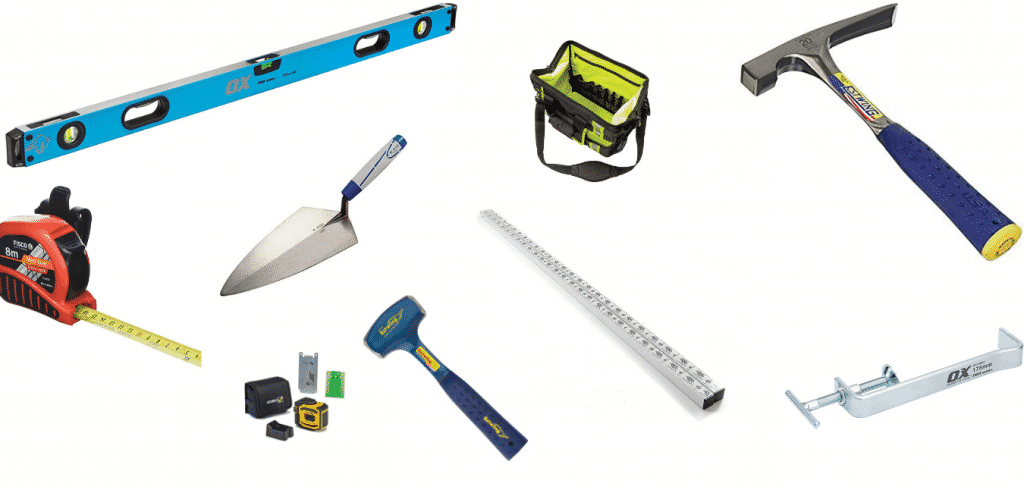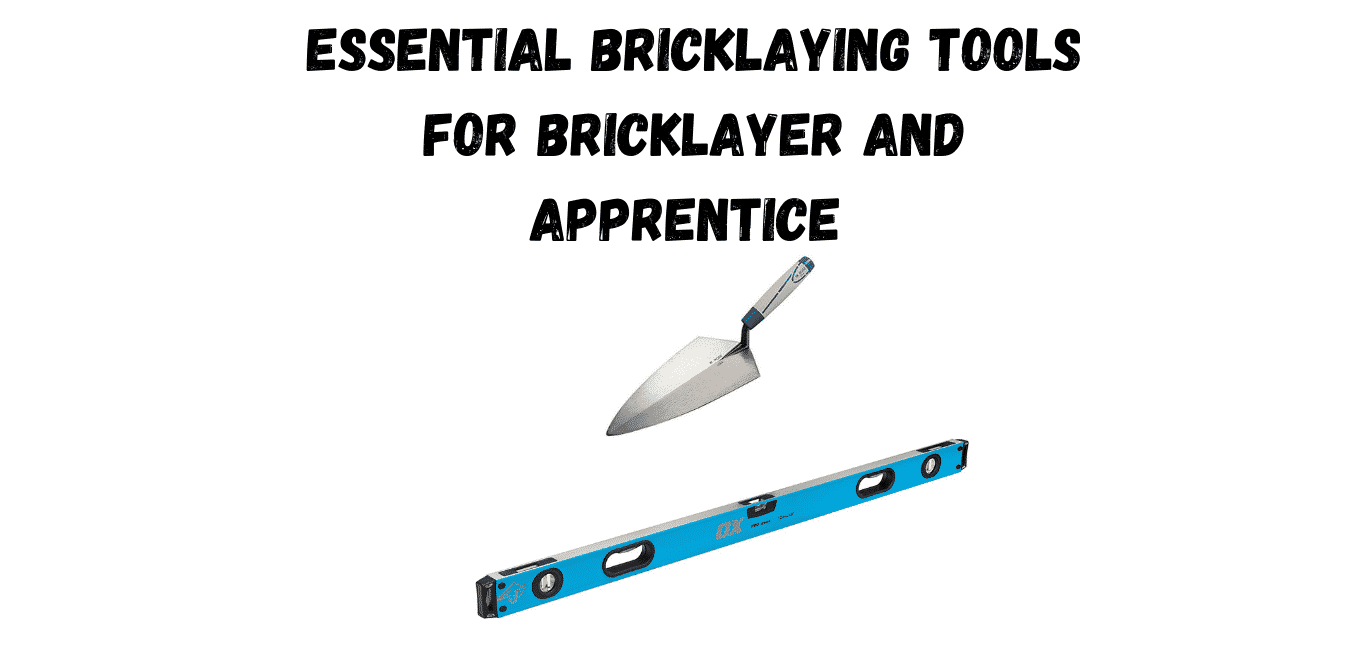The Bricklayers Tool List.
We have put together a selection of essential bricklayers tools
Table of contents
- The Bricklayers Tool List.
- Bricklayers Trowel
- Pointing Trowel
- Bricklayers Tools list Spirit Levels
- 2ft 600mm Spirit Level
- Boat Torpedo Level
- Bricklayers Tools Hammers
- Lump Hammer
- Brick Hammer
- Bolster
- Jointer
- Bricklayers Line
- Bricklayers Tool List Corner Blocks
- Line pins
- Tape Measure
- Bricklayers Specialist tape measure
- Bricklayers Tool List Brushes
- Chisels
- Bricklayers Spot Board
- Bricklayers Profiles
- RatedbyTrade.com
Bricklayers Trowel
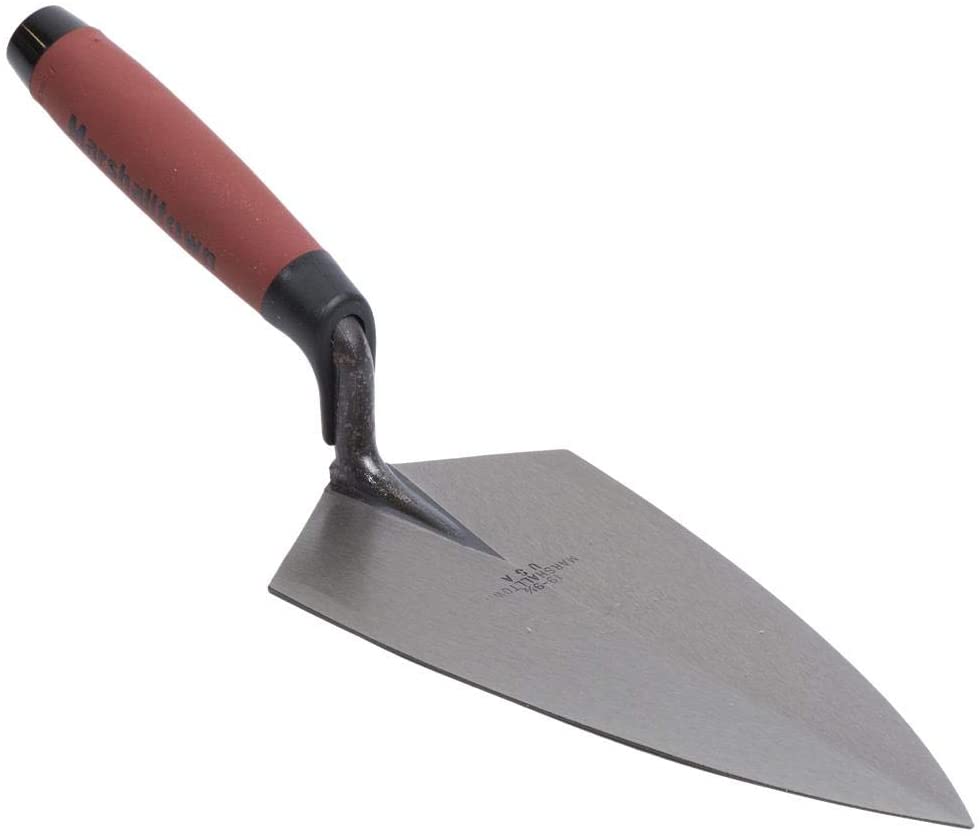
The Bricklaying trowel is the most used and essential bricklaying tool. The trowel will stay in your hand most of the day.
A good quality trowel is sought after by many bricklayers as they know that comfort and balance is vital for performance.
A bricklayer uses the trowel to butter the masonry, spread the bed on the bricks or blocks and tap them into place. Bricklayers even use the trowel to cut bricks and to cut bricks. It would be best if you had a good quality trowel.
Pointing Trowel
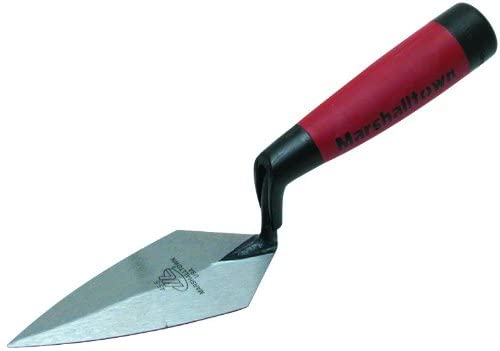
The pointing trowel is used when filling in gaps in brickwork and masonry to fill the void.
Over time the mortar and cement joining the bricks can start to crumble due to age and weather conditions.
The mortar and cement will fall out and start to weather on the face, and This is where the pointing trowel comes in.
There are many pointing styles, depending on whether it’s brick, block or stone, and there are also many styles of pointing and finishes to the masonry.
Bricklayers Tools list Spirit Levels

Bricklayers spirit levels, or what some people call bubble levels, are used to determine whether the brickwork and masonry are horizontal, meaning level and vertical, meaning plumb.
For a Bricklayer to know whether the masonry is exactly plumb and level, it is needed to get the bubble centred in the dial.
There are many different spirit levels for brickwork.
Most bricklayers use a 1200 mm level for plumbing brickwork and blockwork.
2ft 600mm Spirit Level

Boat Torpedo Level

Bricklayers Tools Hammers
Lump Hammer
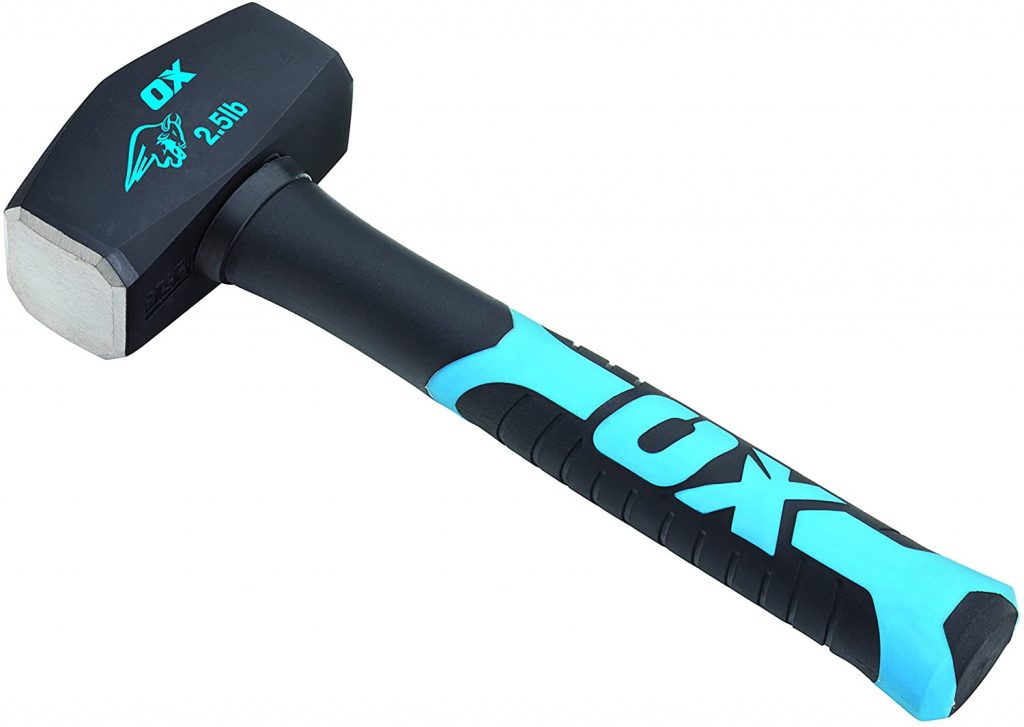
A lump hammer is used to knock blockwork and stone, and also it is used to strike a chisel or bolster.
The primary use of the lump hammer for a bricklayer and mason is to strike the bolster and cut masonry, whether Brick block or stone.
The lump hammer is a heavy hammer and a great tool.
The lump hammer has many uses and is also used for demolition, hitting masonry to rebuild or remove and striking a variant of chisels in the process.
Brick Hammer
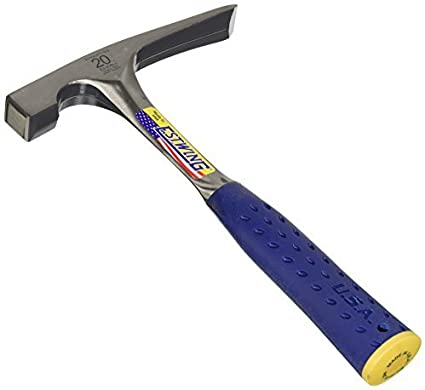
The brick hammer is similar to the lump hammer, and It is used to cut bricks.
With the brick hammer, you can cut certain bricks with one strike, and it is suitable for chipping away the brick to get the perfect size and shape.
Depending on the type of brickwork you are building, whether it’s a half bond or quarter bond, you can cut any size masonry trimmed with the brick hammer.
Many bricklayers become so competent that a couple of strikes with the brick hammer and the perfect size half or measure is cut without using a tape measure.
Bolster
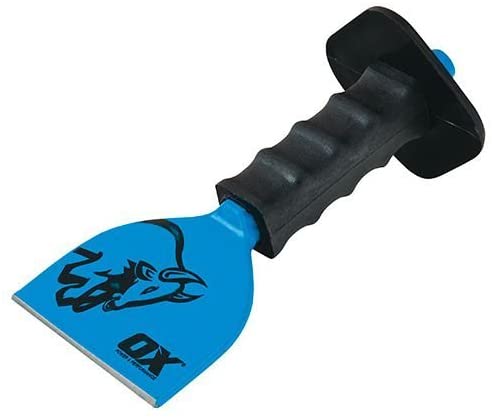
The Bolster is a type of chisel that is used to cut bricks and blocks,
With a few strikes with the lump hammer to the bolster, you can cut brickwork, but to cut blockwork, you will need to circulate block marking around the block square with the bolster and breaking from the top.
Jointer
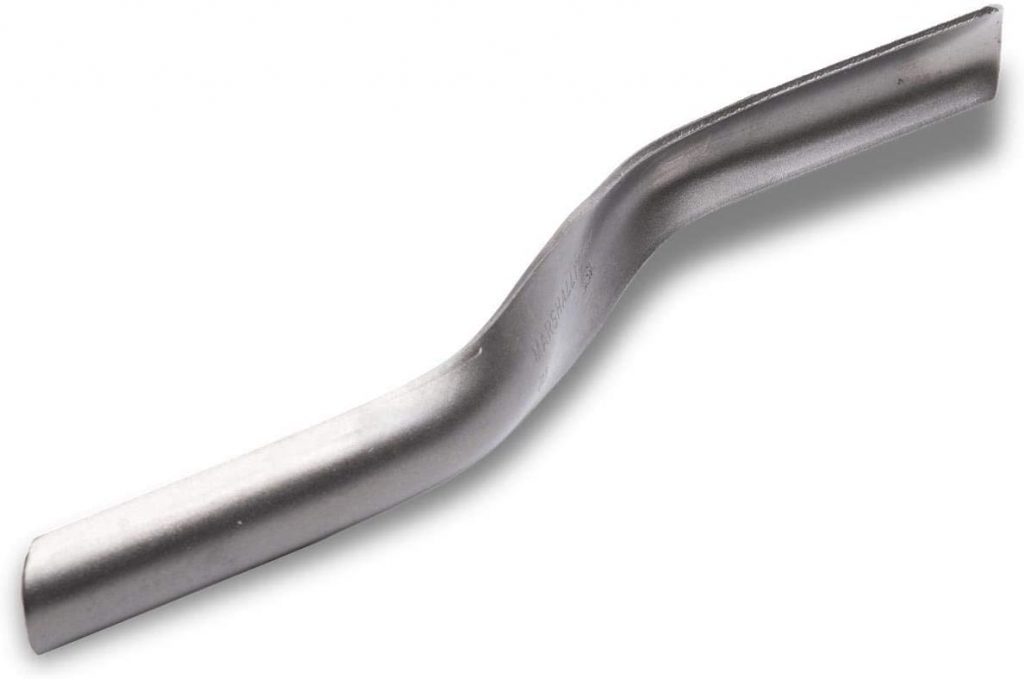
The jointer is used to strike the mortar and cement and finish the brick or blockwork. It leaves a barrel jointed finish that you see in brickwork.
The tool is used to run along the brick’s bed and up the perp leaving the masonry with a clean finish.
Bricklayers Line
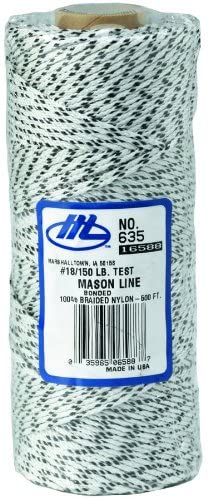
The Bricklayers line is used to run from one corner of the brickwork to the other and used for each course as a reference line and guide to build to, so the brickwork is plumb and level.
The brick line is one of the earliest tools used by man. The ancient Egyptians were known to use them in the construction of the Pyramids.
Whereas the Egyptians would have used simple cotton twine, with 20th Century developments, most brick lines are now made from artificial fibres.
Bricklayers Tool List Corner Blocks
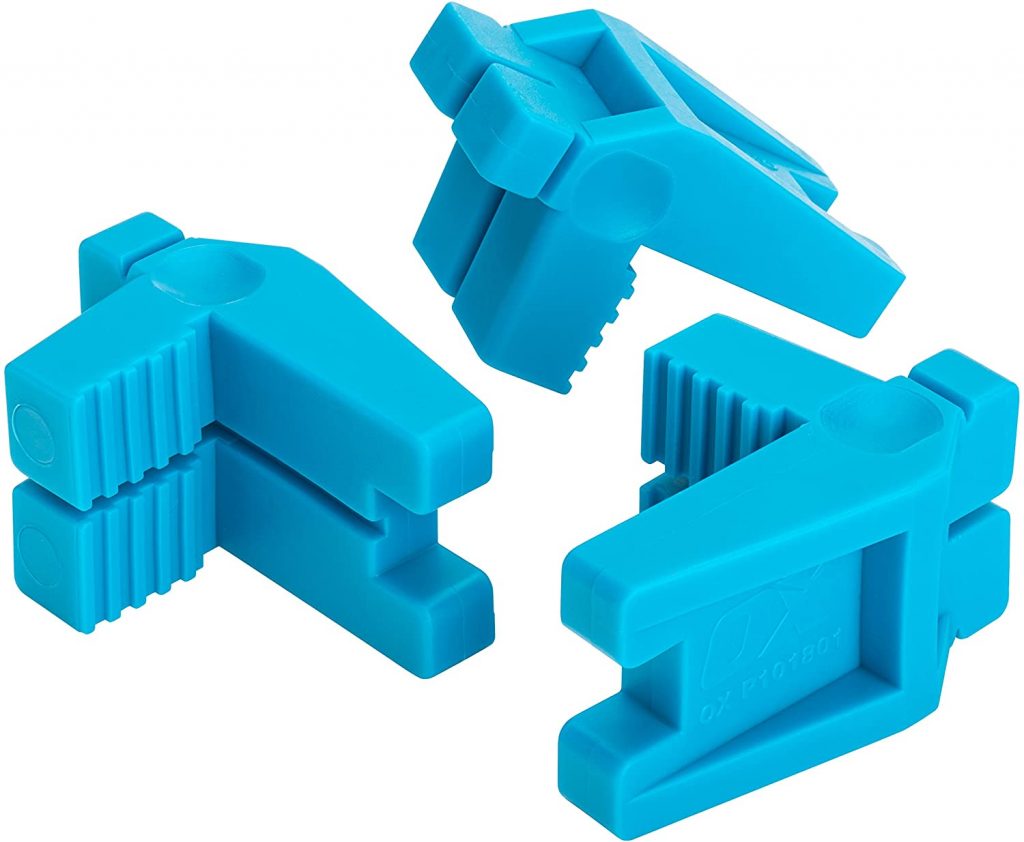
Corner blocks are used to keep the bricklayers line securely in place and grip the corner so the reference line and guide is tight and the bricks can be laid to the line.
It’s essential to make sure the line is tight and the corner blocks are securely on the corner or profile so the line doesn’t sag.
Line pins
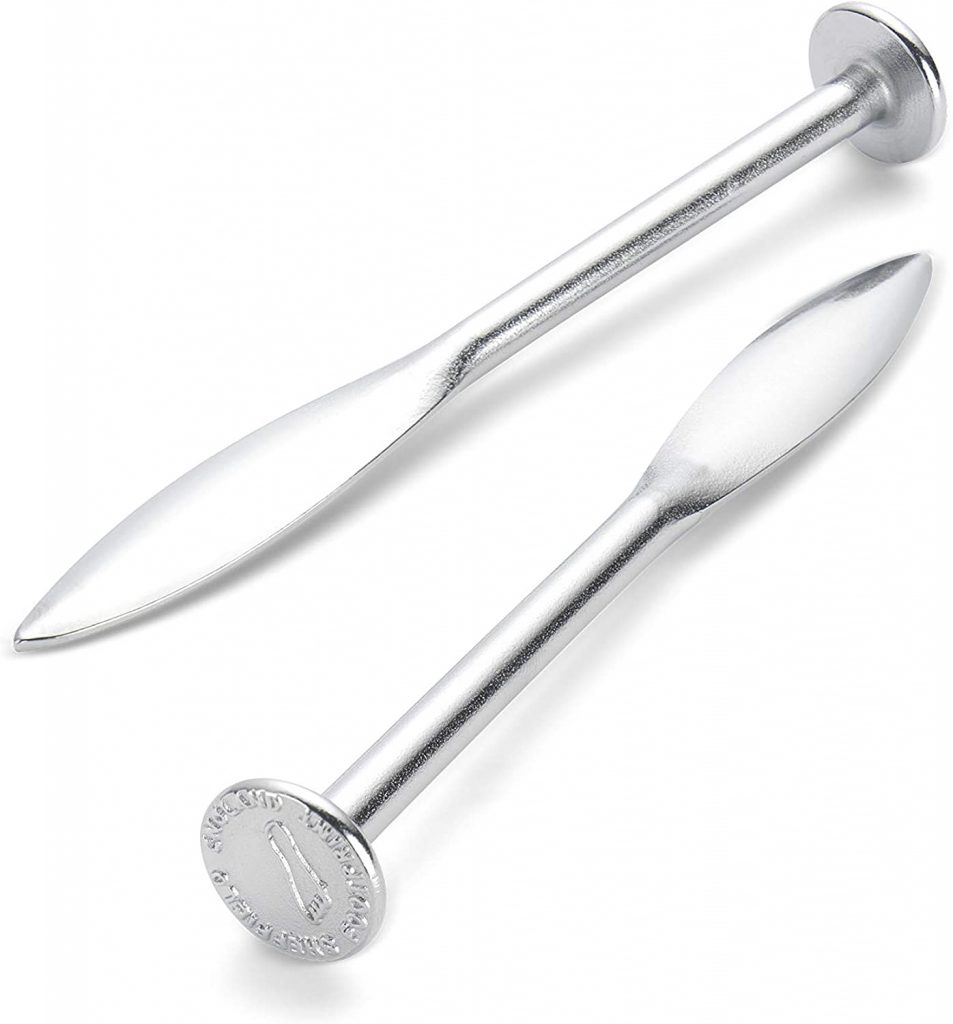
Bricklayers line pins are used to wrap the bricklayer’s line around and also used as anchor pins and knock into the masonry when running to the line.
The pin is a metal rod that’s used to knock into the masonry, and they are used in pairs so you can anchor into brickwork and masonry from each side.
Tape Measure
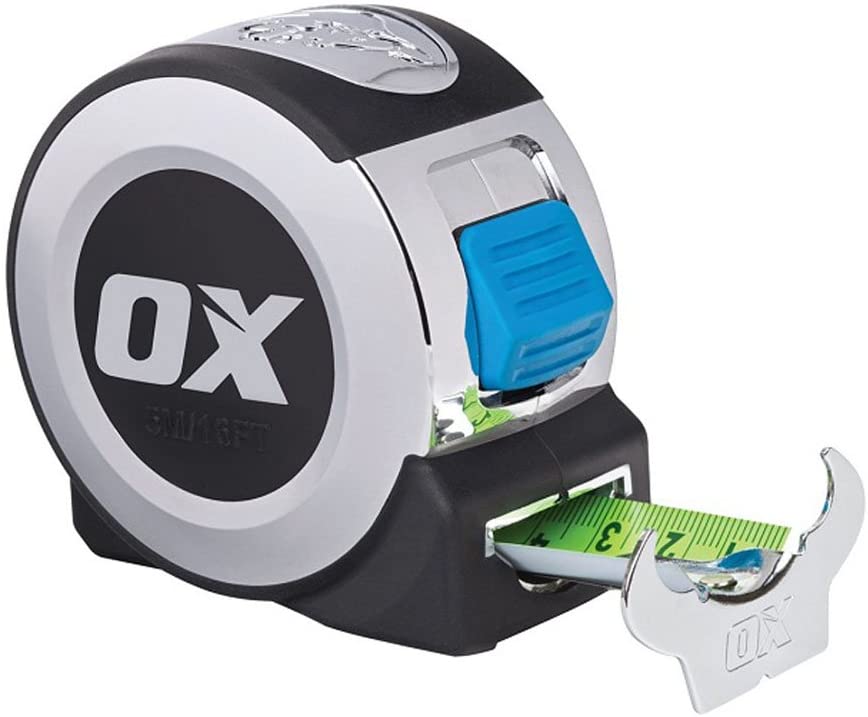
A good bricklayers tape measure is needed when building brickwork and masonry structures.
As you lay your bricks, depending on the brick’s specification and size of the brick Its essential to measure 10mm for the perp when setting out and then keep the brickwork inline above so the perps and joints run inline.
The bed joints also want to be 10 mm, and you will want to gauge your brickwork and blockwork.
Some bricklayers like to work with a Gauge Rod. A gauge rod can save time as everybody can work from the exact measurements. You can make a gauge rod by cutting grooves in a length of wood 2100mm and marking in increments of 75mm for standard brickwork.
When building to specification and building from a drawing, an excellent 8-metre tape is needed so you can measure and set out correctly.
Many bricklayers today use profiles for brickwork, and they mark the gauge on the profiles in increments of 75 mm for standard brickwork, so you know where to lift the line and so you know your walling to gauge.
Bricklayers Specialist Tape Measure
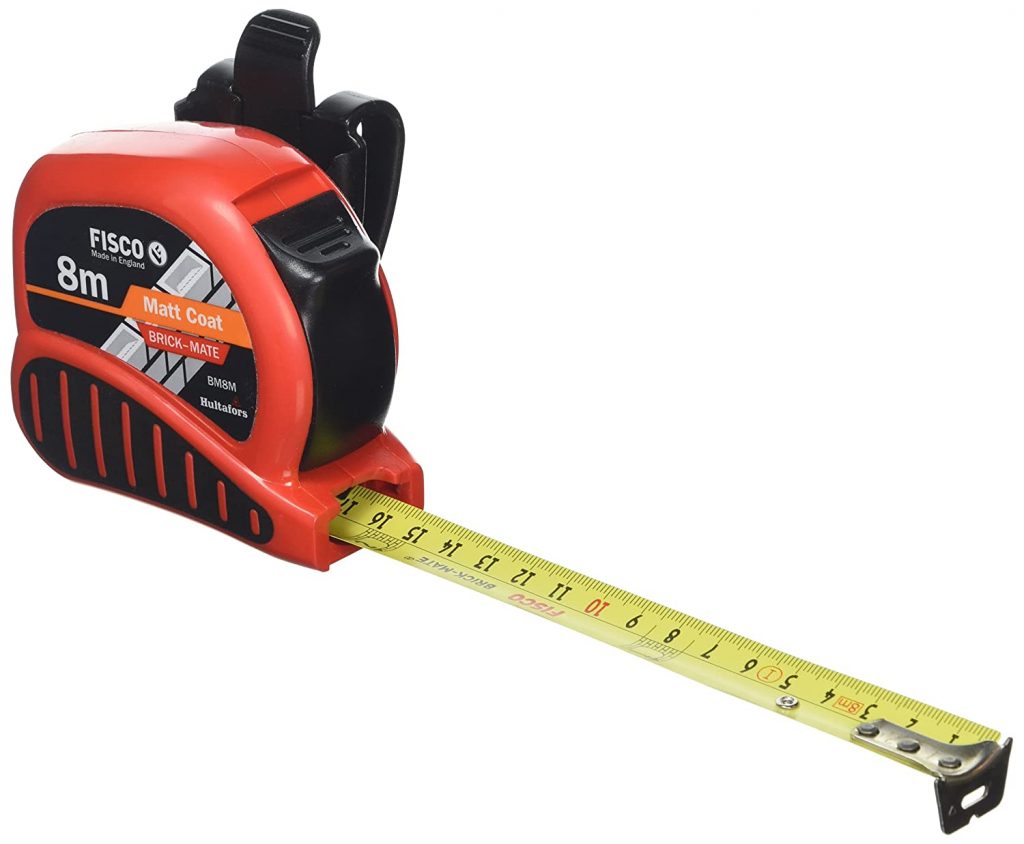
A specialist bricklayers tape has bricklayers markings set on the tape that allows a bricklayer to easily measure the gauge and calculate brick and block quantities effortlessly.
It makes it easier to measure wall length, and it has to mark for bricks and blocks length and bricks and blocks height, leaving no need to dry bond brickwork. The Bricklayers Specialist tape measure is beneficial for the apprentice bricklayer that is not familiar with measurements.
Bricklayers Tool List Brushes
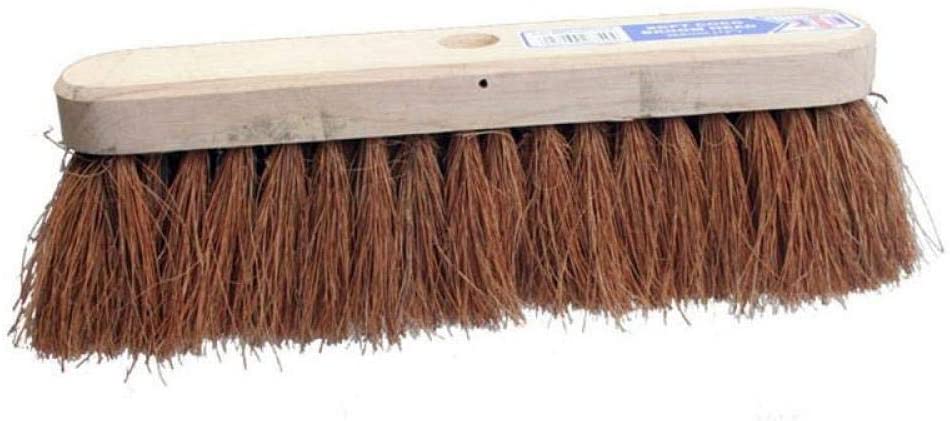
Bricklayers brushes are used for mainly brushing brickwork down and masonry. Many bricklayers use a natural cocoa fibre brush, and it is used for brushing down brick and blockwork when dry and used for cleaning tools.
If a bricklayer wants a better finish and something more delicate on the brickwork, many opt for a bricklayer’s soft brush made from horsehair, the brush rubs of any snots or smears on the brickwork, leaving a clean finish.
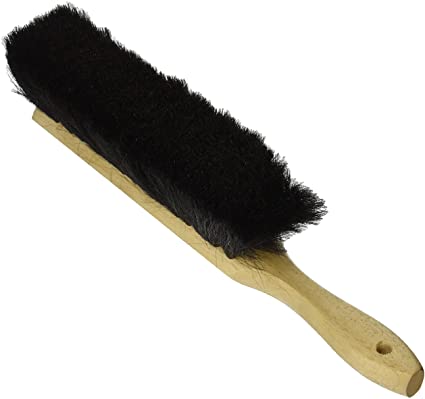
Chisels
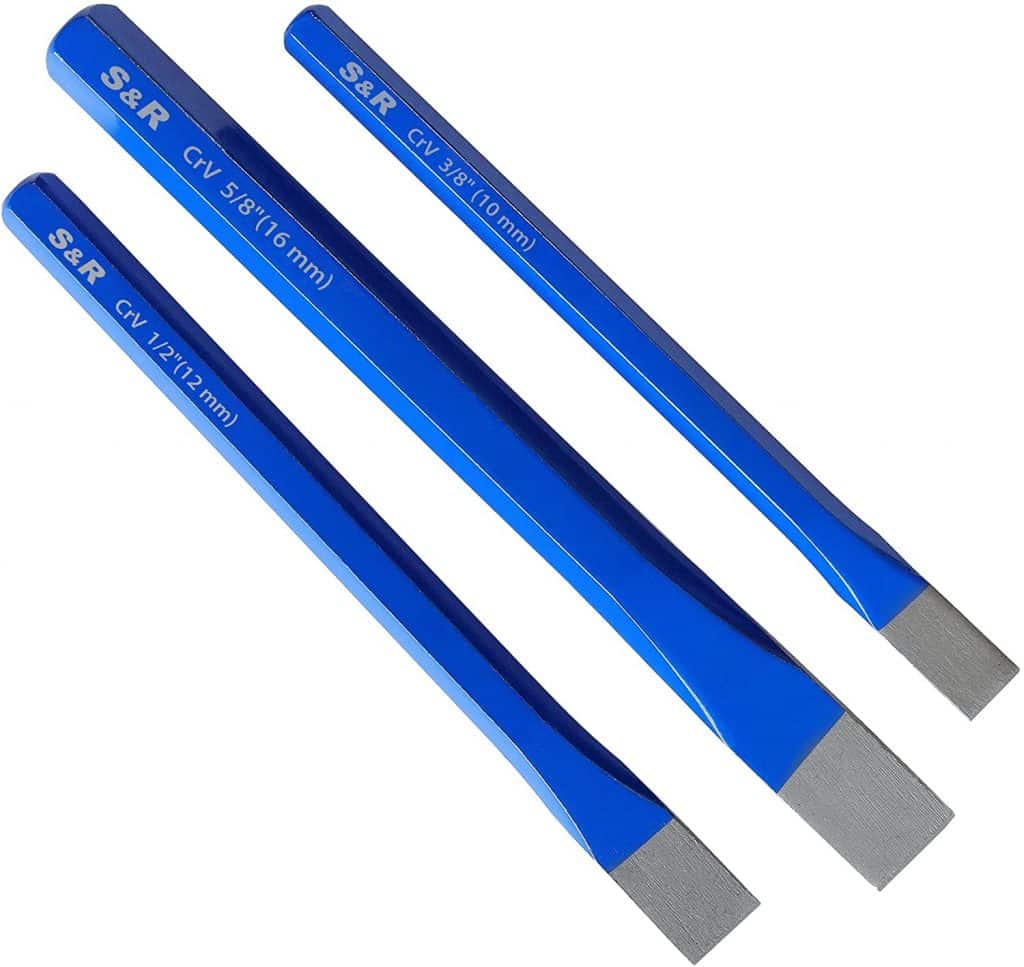
There are several different types of chisel that bricklayers use that become part of their tool kit.
Chisels are used for demolition work and used for various jobs ranging from removing bricks and replacing them to more specialist jobs like shaping stone and masonry.
Bricklayers Spot Board
The Bricklayers Spot Board is used to carry mortar, and it is also called a mortarboard. The
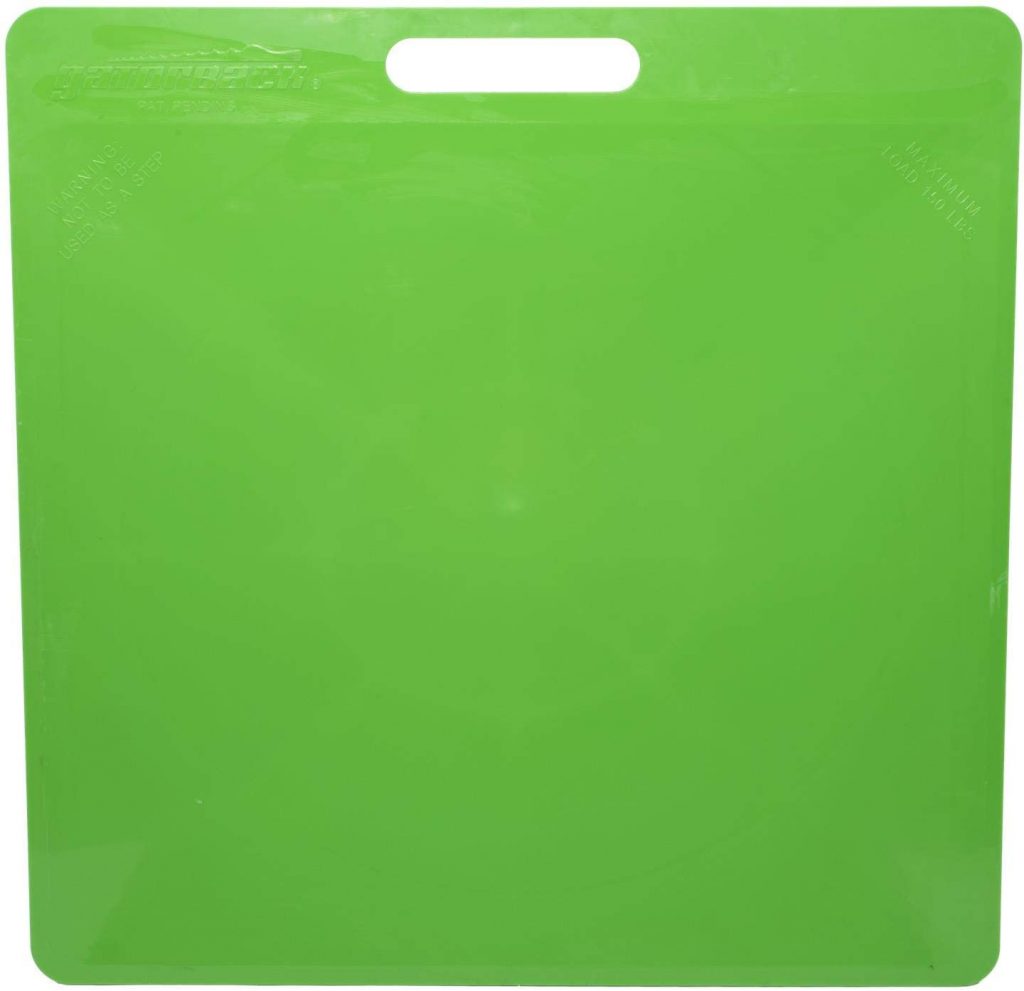
Bricklayers Profiles
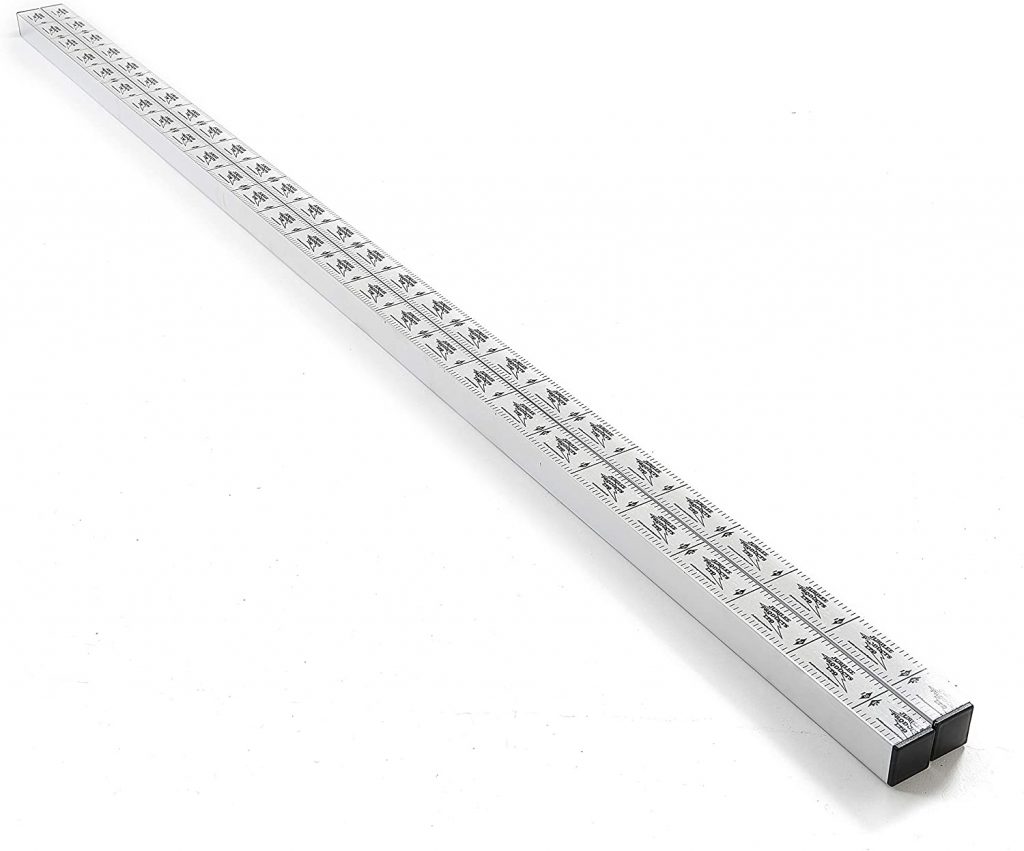
Bricklayers profiles save time and make you a lot of money when used correctly. When a bricklayer has set up a few courses from the foundation, you can set up a profile that you can use as a corner profile and attach your corner blocks and line.
You can then run in your brickwork to the line, so there is no need to build two corners.
You attach the bricklayer’s profile with clamps to the brickwork.
Once clamped Make sure the profiles are plumb, and mark gauge lines on the profiles.
Brick Tongs and Brick Lifters
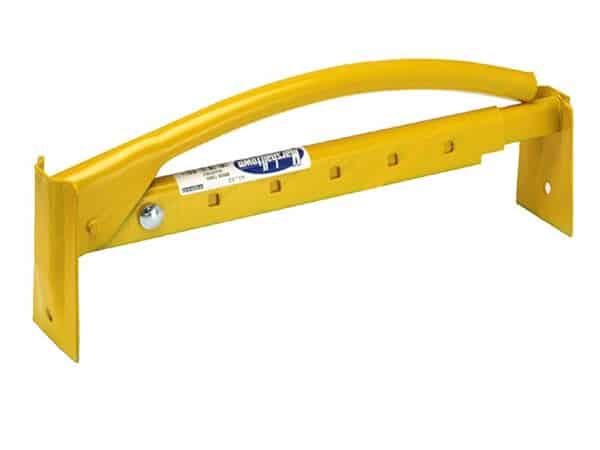
Brick tongs or brick lifters are used to carry bricks around the site they can carry six to ten bricks at a time and make splitting packs of bricks simple.
Concrete Cement Mixer
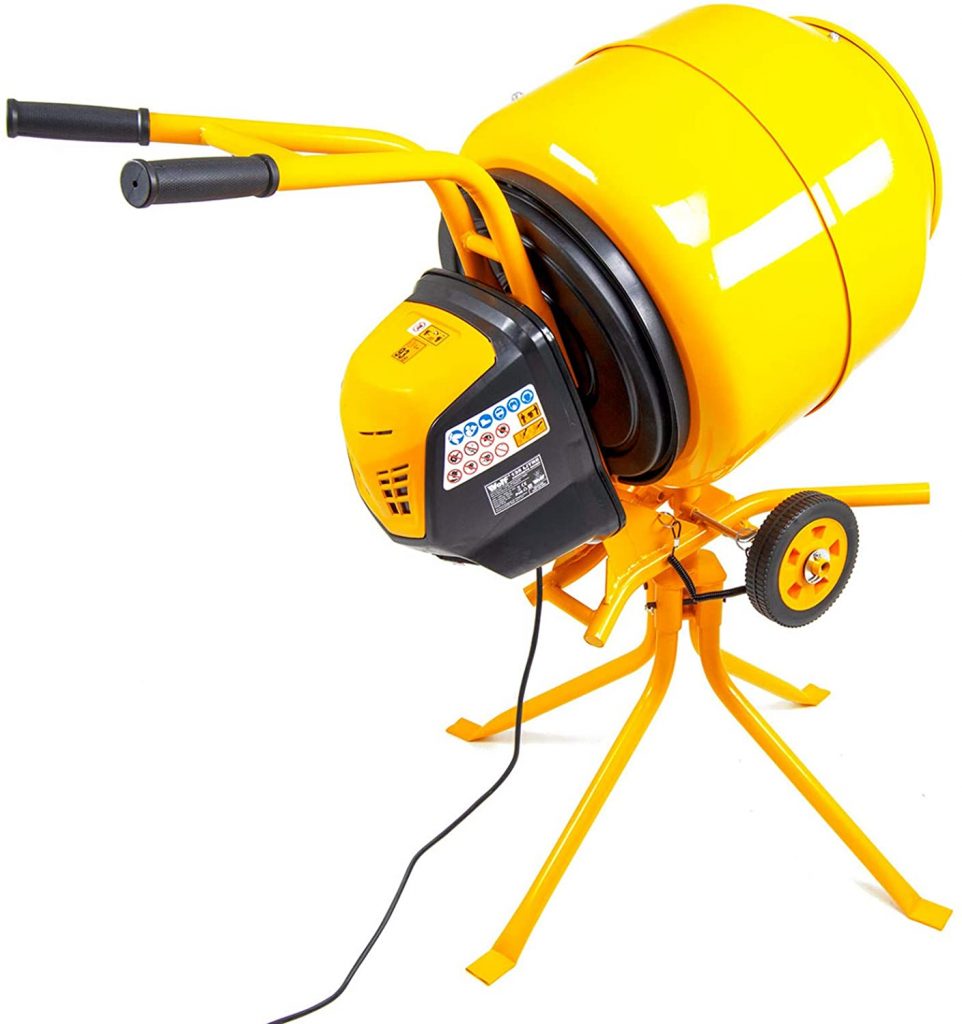
Used to mix mortar cement and concrete a bricklayer needs a reliable cement mixer.
